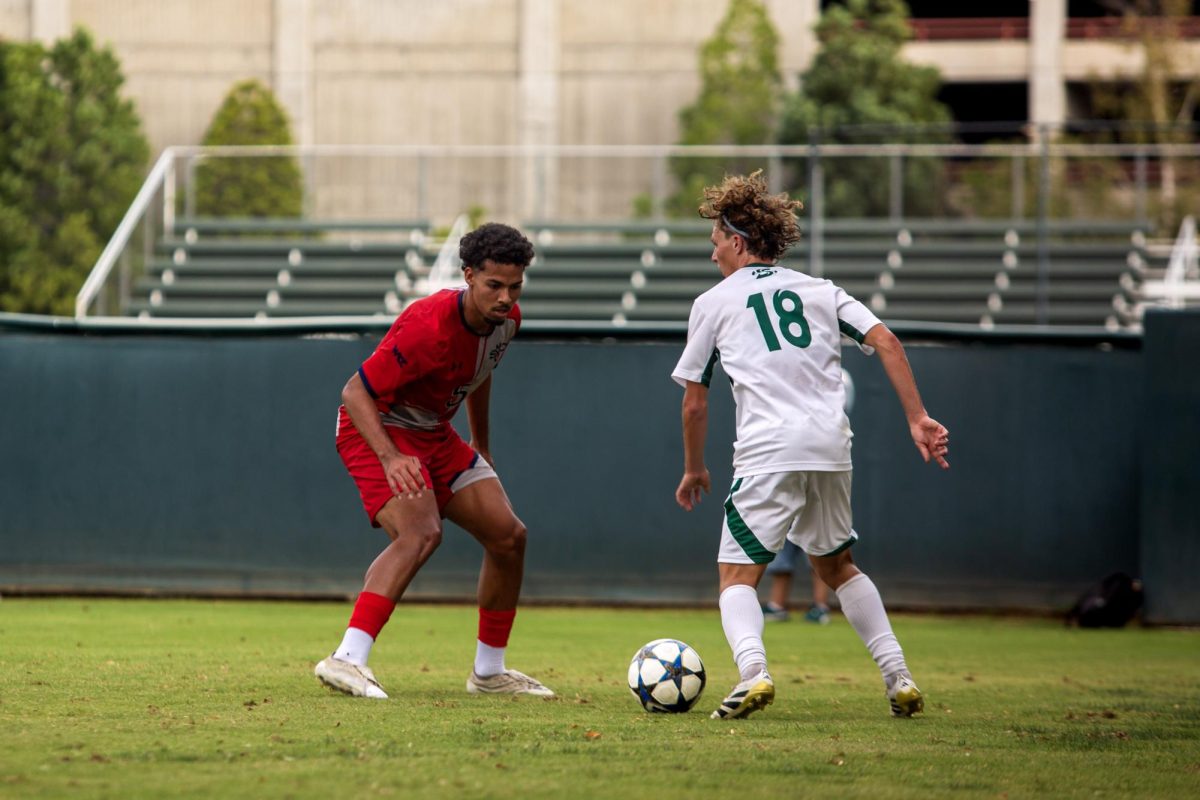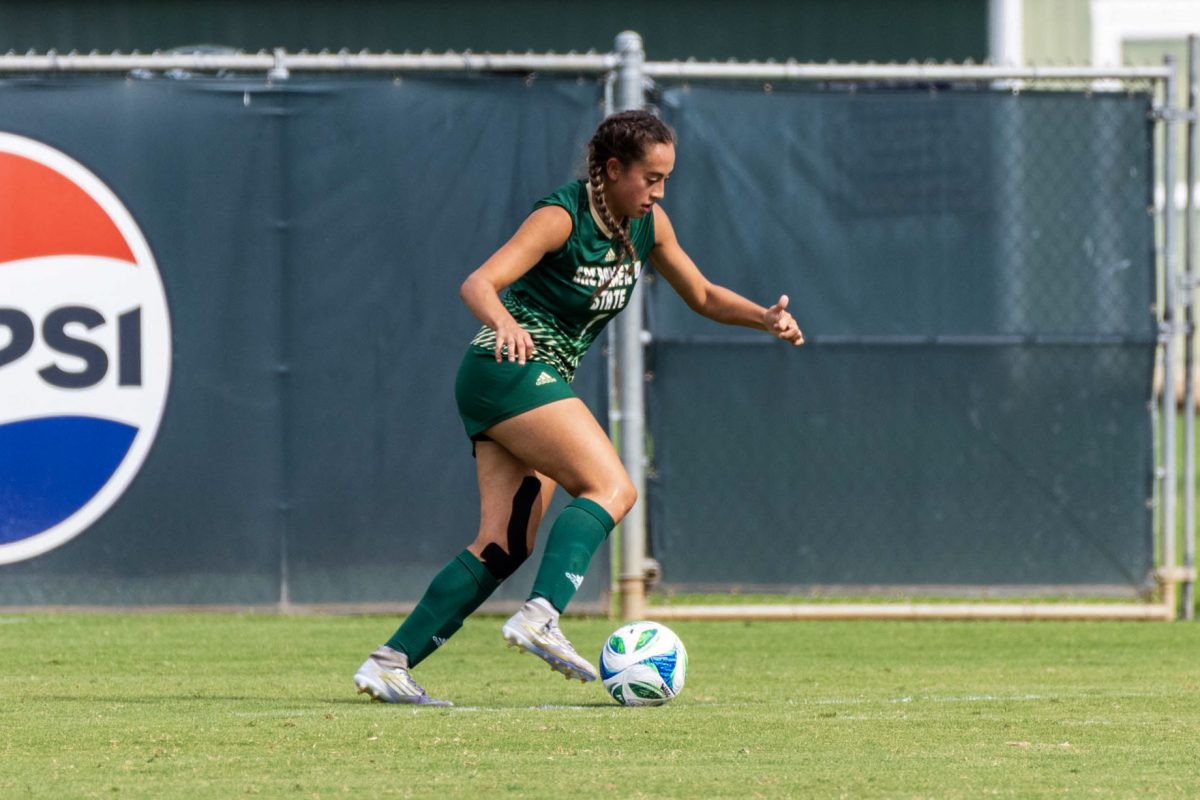Correction, March 26: This article originally stated that Sac State’s Antiracism and Inclusive Campus Plan, DEI initiatives were taken off of Sac State’s website. This is incorrect, instead the URL and names have changed and they both remain on Sac State’s website. The page for Transgender Awareness Week was removed but still can be found on Sac State’s PRIDE Center webpage. The article has been changed to correct this and we regret the error.
Through my lens as a student, Sacramento State’s administration is walking a tightrope, torn between students’ needs and government demands, but it must decide its true focus.
To truly reflect its values and stay accountable to the communities it serves, the university must push back against the federal attacks on diversity, equity and inclusion and challenge their validity to defend its stated commitment to these values.
RELATED: President Donald Trump sends orders to pause federal funding for aid programs
DEI policies are more than just a trend, political talking point or scapegoat, they are essential to ensuring that everyone, regardless of their background, has an equal opportunity to succeed. The actions taken by Sac State’s administration are crucial in building trust with historically marginalized communities, promoting their inclusion and resisting external pressures to change these policies.
Ranked the fourth most diverse campus in the West, Sac State has made notable strides in supporting DEI, with expanding cultural and support centers on campus and housing the nation’s first Black Honors College.
Sac State has demonstrated its commitment to DEI through the Antiracism and Inclusive Campus Plan, its recognition as a Black Serving Institution and Hispanic Serving Institution, Pan-African Programs and Scholarships, and diversity awards. The university has long stood by these programs and initiatives, but suddenly hesitates to continue its open support for DEI.
Some believe DEI initiatives are overfunded, but they’re often understaffed and underfunded, making up a small portion of most institutions’ budgets. Sac State’s 2024-25 budget shows that the president approved nearly $11 million for athletics programs, a rise from 2023, while only $1.6 million was allocated to Inclusive Excellence programs, down from $2 million last year.
In his Spring Address, President Luke Wood acknowledged the country’s political climate and reaffirmed Sac State’s commitment to diversity and inclusion. Though, he didn’t specify how the university would address the Trump administration’s threats to DEI programs and marginalized groups.
At the President’s Forum on March 4, dozens of students expressed concerns about the university administration’s recent actions, particularly its failure to respond directly to the attacks on marginalized communities.
Lsea Quinones, a member of Queers United in Power, said that they hope the administration can make more conscious efforts towards defending inclusivity.
“Trans people are being attacked. With some courage, Sac State could be a refuge against the violence we feel from all angles,” Quinones said.
RELATED: Students present their concerns to President Luke Wood at town hall
It feels eerily dystopian that the university can simultaneously break ground on a new athletic stadium and student housing, yet fail to secure adequate protections for its students. It seems that overcoming physical challenges is far easier than confronting the deeper internal and systemic issues at play.
Sac State says it prides itself on its diversity and commitment to inclusivity, yet its administration seems to be selectively choosing the battles it will fight.
Advocating for the success of historically marginalized groups shouldn’t be a political issue. Yet just as these communities begin to experience positive change, that progress is now at risk.
Eve Annexia, a fourth-year deaf studies major and member of the PRIDE center, said that Sac State is one of only 10 CSU schools with a dedicated PRIDE center.
However, Annexia said that there are still ongoing challenges in other areas of inclusivity, such as non-ADA-compliant spaces, despite CSU policy stating that it ensures equal access and opportunity to individuals with disabilities.
Annexia also said professors may lack the knowledge to effectively support students with queer identities, sometimes struggling to use correct pronouns for gender nonconforming students.
“I want to make sure that we are able to hold some of these individuals accountable because at the end of the day, these actions do affect us as students,” Annexia said.
RELATED: Sac State students concerned about federal DEI and immigration-related policy changes
Eliminating the programs that help ensure these groups’ success, disregarding their histories and suppressing their voices will only worsen racial, gender and economic inequalities. It will also expand achievement gaps and negatively impact the campus climate for students of color, LGBTQ+ students and others who already face systemic barriers to attend Sac State.
RELATED: Hundreds protest Project 2025 amid Trump’s new policies at California Capitol
These initiatives are not radical ideas. They reflect core American values that aim to ensure equal opportunity, dignity and respect for all. Sac State’s frequent promotion of its focus on inclusivity leads me to believe these initiatives should fit in seamlessly with its pedagogy, particularly considering its high ranking in diversity and expressed desire to provide abundant opportunities for its students.
The current lack of external support from faculty and administration can sometimes place the burden of fostering inclusivity on the centers themselves.
Annexia said that the PRIDE Center primarily receives most of its support internally and from its own members, rather than from the university. Although the PRIDE Center has grown with a new coordinator and expanded resources, existing support is still limited, forcing the center to seek donations to sustain its resources.
There is also a lack of administrative presence, specifically Wood, at the PRIDE center’s events, which can sometimes make the center feel isolated, Annexia said. She said that simply hearing about plans isn’t enough; she wants to see a clear, actionable path forward.
“A plain statement of ‘We got this’ is not very reassuring. I want to see more dedicated plans,” Annexia said.
When I requested individual interviews with cultural centers on campus, University Communications redirected me to a vague statement on their behalf. This revealed a lack of transparency in how they want their support for these centers to be perceived.
I asked about these centers’ support in the current political climate, potential funding cuts and if they wanted a more direct statement from Wood on DEI attacks. If Sac State can’t openly and proudly stand up for these communities in times of pressure, I don’t think they should be speaking on their behalf.
The political forces pushing back against DEI don’t just challenge the validity of these policies, they seek to dismantle the very notion of equity and inclusivity in our educational systems.
Those who oppose these policies fail to recognize that the real division comes from ignoring and perpetuating inequality, not from efforts to correct it. If we abandon DEI, we risk reinforcing a status quo that excludes and marginalizes entire groups of people based on race, gender and background.
RELATED: Federally Funded Schools Receive Ultimatum from Department of Education
In his Spring Address, Wood said that Sac State stands out as “the North Star of the West” for its commitment to a caring campus and diverse student body. If this is true, then Wood needs to lead by example, making the bold decision to prioritize students’ needs over government-imposed authority.
As both students and policymakers have emphasized, we must defend DEI. The alternative is not just a setback; it’s a dangerous step backward toward inequality.
Now is the time for vigilance, bold action and clear purpose. Sac State must respond decisively and earn students’ trust by demonstrating it truly understands and values the communities it serves. The focus must remain on increasing, not decreasing, efforts to support student success and a sense of belonging.
“We hope that President Wood will find the courage to lead his staff to develop safer spaces for immigrant, refugee, trans and other vulnerable students,” Quinones said.


























































































































Pam Pajak • Apr 13, 2025 at 9:57 am
Very informative and points outlined are credible. I was unaware of Sac State ranking among most diverse student body on west coast.